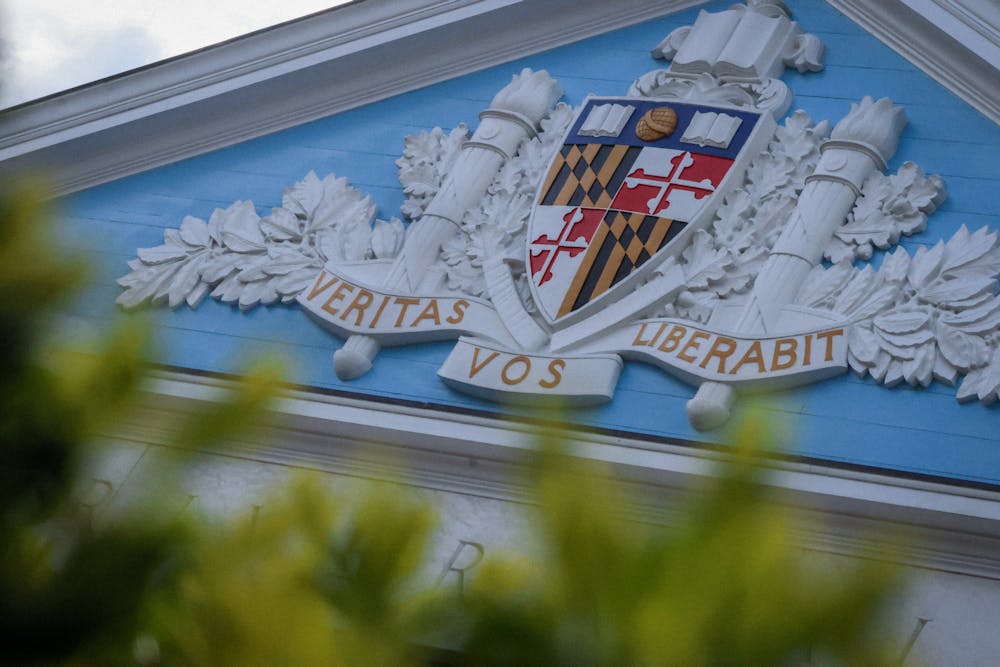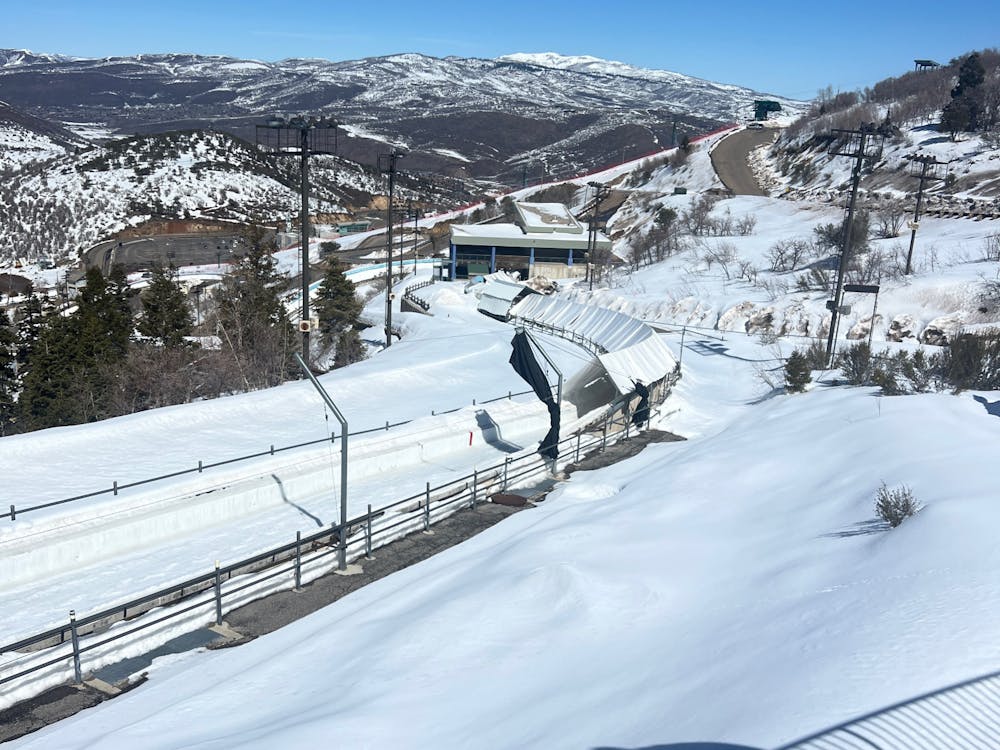On April 15, University administration hosted a virtual Community Updates conversation titled “Immigration and student visas.” The event was a conversation between Interim Vice President and General Counsel Tiffany Wright, Vice President for Public Safety and Chief of the Johns Hopkins Police Department Branville Brown, and Associate Vice Provost of of International Student and Scholar Services Jim Brailer.
It was moderated by Executive Vice Provost Stephen Gange, who led the speakers through an overview of the information that has been afforded to the University thus far about the presence of federal agents on campus, and the legal forms of action for students and faculty in the case of federal presence.
Wright began the discussion with an overview of the recent executive orders relevant to the Hopkins community. The first regards the deportation of foreign terrorist and other threats, and has recently been implemented in the cases of visa-holders who have committed crimes on domestic soil which jeopardizes their status.
Though no charges have been brought against the 37 Hopkins graduate students who have had their visas revoked to date, this policy has been used as reason for revocations at other universities. In the past, students risked losing their status over criminal convictions, but participating in protests or getting traffic tickets was rarely considered a valid reason for visa revocations. The other aspect of this order affords the U.S. Secretary of State the authority to screen all existing or future immigrants to the U.S.
The second relevant executive order, seemingly aimed at combating antisemitism, has had other implications in terms of deporting students who hold F-1 visas, according to Wright. It has been cited by the administration as a justification for status changes of F1 visa-holding college students across the country.
She then gave an account of the actual impact of the executive orders on the revocations of individual students’ visas.
“There was a fact sheet that accompanied that second executive order that made it clear that the goal of the administration, as a continuation of what was outlined in the second order, was to make sure that they were targeting folks who had expressed ideological opinions with which the administration disagrees,” she said.
This has resulted in an upsurge of detentions and forced emigration acts carried out by U.S. Immigration and Customs Enforcement (ICE) and other federal agents, particularly against students at other universities who have been involved in on-campus activism.
Wright explained that Hopkins does not share students’ personal information with law enforcement or the federal government unless it is legally required. As an open campus, government officers are permitted to enter public spaces at Homewood but barred from entering private spaces — including clinical spaces, classrooms, dorms and faculty offices — without a court order or special permission.
She went on to clarify that interference in situations where ICE is present can be prosecuted as a federal crime or a felony under certain circumstances. Harboring those you know are subject to ICE enforcement, alerting them that ICE is present on campus or interfering in the questioning or detention of another student are all relevant to this possibility, and these actions are advised against by the Hopkins administration.
The strong suggestion of the University is that any member of the community who encounters a immigration enforcement officer should contact the Hopkins Public Safety Department at (667) 208-1200, who can notify the Office of General Council.
The next speaker was Brailer, who outlined the conditions of the revocation of F-1 visas among Hopkins students. He explained that visas are afforded to students through the Student Exchange Visitor Information Database, which exists under the authority of ICE, an office which is under the jurisdiction of the U.S. Department of Homeland Security.
According to Brailer, though there are situations where the revocation of F-1 visas is reasonable, the 37 Hopkins students targeted by the federal government have received no explanation for their status change. Because their visas are the only basis for each student’s right to be in the country, they are not allowed to continue in-person work; however, Brailer’s office is attempting to work with these students one-on-one to create plans that allow them to continue their studies and receive legal counsel.
Bard then took over the conversation and spoke about the specific procedures students should follow if they are confronted with federal agents.
“The advice we're giving is meant to be protective in nature, and to help members of our community avoid personal legal jeopardy. We want to help you stay safe. We ask for people to contact Public Safety and the Office of the General Counsel, because members of those teams are best positioned to provide help during an encounter,” he said.
The members of the administration then began receiving questions and comments from the audience through Gange, who summarized common concerns among viewers for the speakers to respond to.
The first common theme addressed by the administration was about the ability of the University to interfere in the case that a student is being targeted by ICE on campus. Wright explained that though the school cannot interfere if the agents have a warrant, campus police is interested in upholding the law and the safety of students.
“If ICE or any other government law enforcement agency were to enter Hopkins spaces, particularly those that are private, there are legal parameters to that: legal parameters that we would enforce and defend and assert our rights, to the extent that we are lawfully able to do so, but we could not prohibit ice from coming to campus,” she said.
Brailer then explained that the Office of International Student and Scholar Services offers free courses to international students with the aim of educating them on the lawful processes surrounding their immigrant status. They are also offering one-on-one support, given the unprecedented nature of this federal intervention.
He then addressed an audience question about whether the students who have been selected by ICE thus far have any common demographic or involvement on campus.
“We haven't seen any patterns that would give us clues as to the reason that these individuals have been terminated,” he said.
To the question of what legal advice will be made available to students, Wright explained what the University is allowed to do for students in precarious legal situations.
“We have a list of organizations specifically where they can seek pro bono legal counsel, so we have been providing that list where it's been requested. That is what we're doing in the realm of legal advice and legal representation for now,” she said.
Otherwise, the speakers jointly asserted that the appeals process is out of the purview of the university as the revocation was not a university decision in the first place.
The series of community updates regarding immigration and visa status is set to continue in the coming weeks as more information is made available to the University and the situation progresses.





